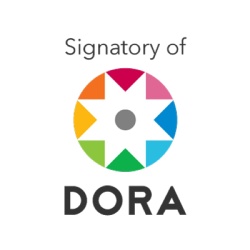Educational Animation and Learning disorders
الرسوم المتحركة التعليمية وصعوبات التعلم
Abstract
Educational animation is one of the types of animation in general, it is produced selectively and privately to achieve certain goals that serve the educational educational process, as studies have proven the existence of a relationship between education and animation, which made researchers study the importance of using them with people with special needs, as it is that Individuals with learning disabilities fall into this category, and due to their characteristics that distinguish them from others, the use of educational animation in teaching these people, undoubtedly, improves their reading skills, helps to attract their attention, and develop their imagination, as the education of people with learning disabilities has become dependent on It is essential to use modern strategies, which is also included in e-learning for this category. In addition to its contribution to raising awareness of this category of society, it is necessary to note that people with learning disabilities may have difficulty understanding cartoonish humor.
Downloads
References
Fujisawa, K., Inoue, T., Yamana, Y., & Hayashi, H. (2011). The effect of animation on learning action symbols by individuals with intellectual disabilities. Augmentative and alternative communication (Baltimore, Md. : 1985), 27(1), 53–60. https://doi.org/10.3109/07434618.2011.553245
Pickering, E., Pickering, A., & Buchanan, M. L. (1987). LD and Nonhandicapped Boys’ Comprehension of Cartoon Humor. Learning Disability Quarterly, 10(1), 45–51. https://doi.org/10.2307/1510754
- Arabic references in English:
Ahmed, T. (2013). The Effectiveness of Multimedia Program in Treating Learning Difficulties: The Computer Curriculum and Information Technology for Preparatory Stage Students. College of Education Journal, Egypt, (14), 131-165.
Ismail, A. S. B. (2019). The Impact of a Water Relaxation Program Using Animation on Learning Some Skills. Master's Thesis in Physical Education, College of Physical Education for Boys, Benha University.
Baaloucha, G. A. (2013). The Impact of Employing Animation in Teaching the Biography Unit. Master's Thesis in Curriculum and Teaching Methods, Faculty of Education, Islamic University of Gaza.
Hammad, A. R., & Zaraa, A. (2017). The Effectiveness of a Program Based on Animation in Teaching History to Develop Visual Thinking Skills Among Preparatory Stage Students. College of Education, (33), (03), 163-190.
Hasbullah. (2004). The Effectiveness of Using Dynamic Software in Teaching Engineering to Students with Learning Difficulties in Preparatory Stage. Damietta College of Education Journal, Mansoura University, 1-38.
Al-Zu'bi, L. (2020). Multimedia. 1st Edition. Syrian Virtual University Publications, Syrian Arab Republic.
Al-Zu'bi. (2016). The Impact of Violence Scenes in Children's Television Programs (Cartoons) on Children from the Perspective of Caregivers (Mothers) and Teachers. Master's Thesis in Media, Faculty of Media, Middle East University.
Al-Zahrani, A. M. M. (2017). The Impact of Using 2D and 3D Animation in Acquiring Some Chemical Concepts. International Journal of Educational and Psychological Sciences, (09), 13-45.
Al-Zobin, W., & Aldawlat, A. (2017). The Impact of Using Animation Method in Acquiring Scientific Concepts Among Second Grade Female Students in Saudi Arabia. Journal of Educational Sciences Studies, (44) (4), 105-112.
Shawky. (2011). The Role of Animation in Acquiring Social Skills by Children with Special Needs. Unpublished Master's Thesis, Faculty of Education, Ain Shams University.
Ash-Sharif, F. (2020). The Effectiveness of Using Digital Stories in Teaching English Language to Develop Some Oral Reading Skills Among Students with Learning Difficulties in the Sixth Grade. College of Education Journal, (186), 497-546.
At-Tuwairqi, R. A. (2020). The Impact of Using Animation in Treating Dyslexia Reading Difficulties Among Third-Grade Female Students in Jeddah. Journal of Educational and Psychological Sciences, (4) (32), 138-149.
Tahrawi, Y. (2019). One Hundred Definitions and Definition of Learning Difficulties. 1st Edition. Dar Al-Mothaqaf Publishing and Distribution, Algeria.
Tahrawi, Y. (2020). The Effectiveness of a Proposed Therapeutic Program Based on Social Learning Theory in Improving the Level of Social Skills for Learners with Learning Disabilities. Unpublished Doctoral Thesis in Educational Psychology, Faculty of Humanities and Social Sciences, University of Tlemcen, Algeria.
Obaidi, W. S. M. (2018). The Impact of Using an Educational Program Based on Animated Learning Activities in Achievement and Attitudes Towards Science Among Fifth-Grade Students in Jenin Governorate. Master's Thesis in Curriculum and Teaching Methods, Graduate College, An-Najah National University.
Abbas, Z. A. (2016). The Impact of Using Educational Film in Developing Some Concepts. Master's Thesis in Curriculum and Teaching Methods, Faculty of Education, Tishreen University, Syrian Arab Republic.
Al-Omari, A. B. (2019). The Impact of Using Digital Stories on Female Students with Reading Difficulties in Improving Oral Reading Skills, Discrimination, and Analysis. Journal of Taibah University for Arts and Humanities, (21), 515-567.
Qarash, S. D. (2015). Scientific Cartoons Between Learning, Communication, and Scientific Interaction. Ru'at Tarbawiya Magazine, (46-47), 126-143.
Al-Magrawi, O. (2017). Animation and Its Impact on Acquiring and Developing Speech Skills for Non-Arabic Speakers. (07) (04), 173-188.
Al-Masri, S. M. (2020). Animation and Its Role in Developing Health Concepts Among Children Aged 4-6 Years: An Analytical Study of Some Dubbed Cartoon Series. Journal of Media Research, Faculty of Media, Al-Azhar University, (03) (55), 1627-1680.
Nashwa, A. (2015). The Effectiveness of Two Active Learning Strategies in Reducing Symptoms of Hyperactivity and Improving Academic Achievement Among a Sample of Elementary Students with Attention Deficit Hyperactivity Disorder. Journal of Special Education and Rehabilitation, (02) (06), 27-74.
Al-Hudhali, I. A. M. (2015). The Effectiveness of Animation and Direct Interaction in Developing Geometric Shape Concepts According to Vygotsky's Sociocultural Theory for Preschool Children. Arab Childhood Journal, (16), (63), 33-67.

This work is licensed under a Creative Commons Attribution-NonCommercial 4.0 International License.









